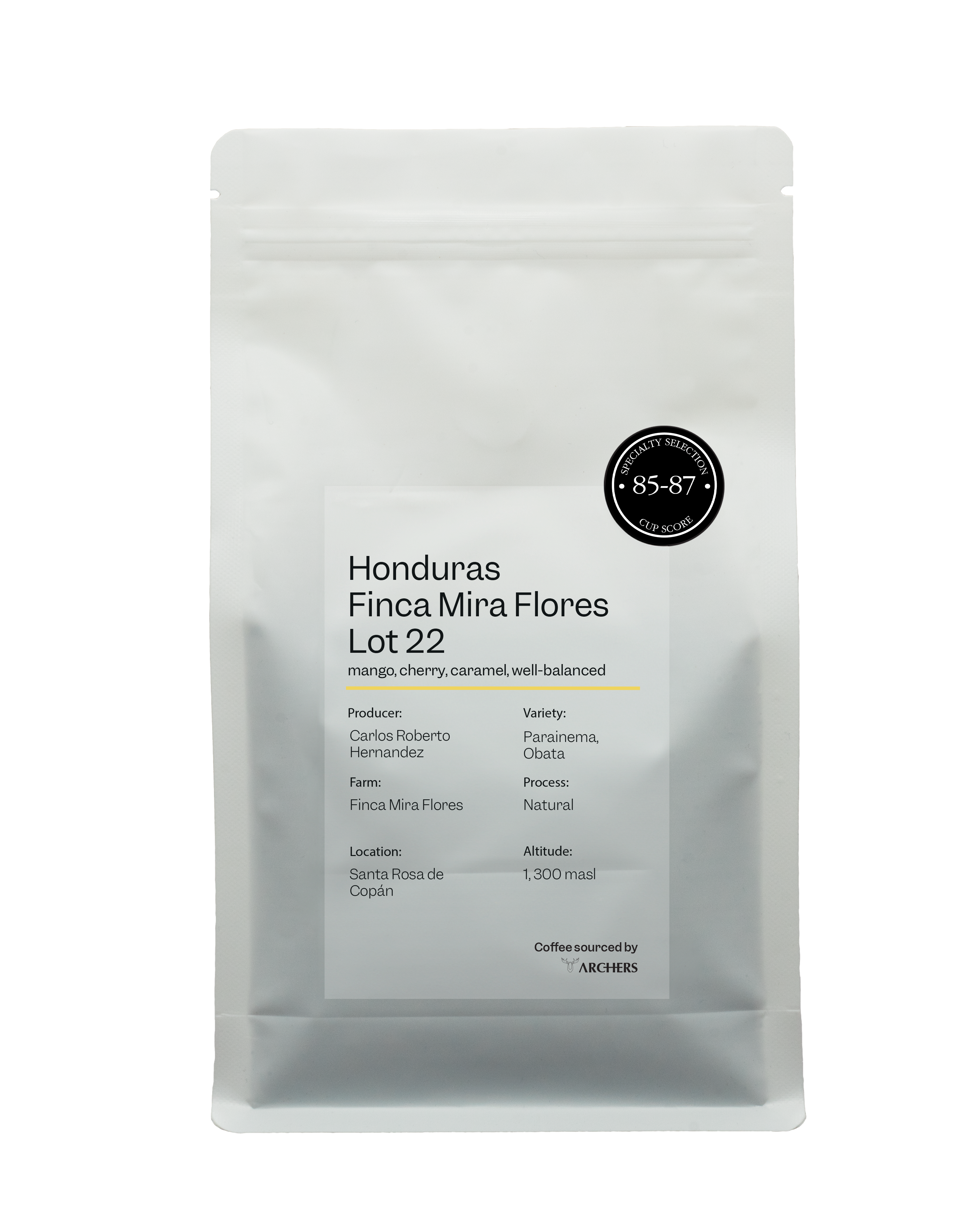
Honduras - Finca Mira Flores Lot 22
Tasting Notes
Description
Producer: Cafesmo / Carlos Roberto Hernandez Farm: Finca Mira Flores Location: Santa Rosa de Copán Variety: Parainema, Obata Process: Natural Altitude: 1,300 masl Fermentation ▪▪▪▫▫ Sweetness ▪▪▪▪▫ Acidity ▪▪▫▫▫ Roast ▪▪▪▫▫ Carlos Roberto Hernandez is a third-generation coffee farmer and founding member of Cafés Especiales Mercedes Ocotepeque (CAFESMO), a collective of 280+ smallholder farmers based in the Honduran coffee-growing region close to Guatemala and El Salvador. Their coffee farms are bordered by the country’s highest peaks, Cerro Pital in the west, and the Guisayote National Reserve and the Pacayita volcano on the other side. The mountainous topography creates micro-climates beneficial to different coffees, such as Parainema, Pacas, Lempira, Catuaí, Obatá, Colombia, and IHCAFE90. Their members’ harvests are processed in their own centralized facility, which has a wet mill, drying patios, a dry mill, and a cupping lab. Finca Miraflores, meanwhile, is Carlos Roberto’s 13-hectare farm nestled in a predominantly pine forest where cypress, guamo, and liquidambar also grow. Through his farm, he has been enriching their family tradition of coffee cultivation by enhancing the approaches he learned from his grandfather and his mother with best practices learned from the dynamic world of specialty coffee. For instance, his coffees are grown in the shade of taller trees — customary in specialty coffee —encouraging more gradual and homegeneous maturation of the cherries. This is a notion that would not have been approved of and much less promoted during the earlier generations’ time, because of their belief that coffee could only grow in full sun. The Parainema variety is a cultivar developed by the Honduran National Coffee Institute (IHCAFE) to mitigate natural risks that could undermine the efforts and worth of the national coffee industry and endanger the livelihoods of the workers across the coffee value chain who depend on it. The Parainema’s hardiness is due to its deeper and sturdier root system compared to more traditional varieties like Typica and Bourbon. Because of its root system, it is able to thrive in spite of threats from nematodes while extracting as much nutrients as possible from the soil, allowing it to regularly bear healthy coffee cherries in viable volumes. It is also more adaptable to different types of soil and has resistance to coffee leaf rust. Previously more recognized for its resilience and yield productivity than its cup quality potential, it currently enjoys recognition as a flavorsome variety when cultivated in the optimal terroir, selectively hand-harvested, and processed with intention. The turning point came in 2017 when a Parainema variety emerged in 1st place at the Honduran Cup of Excellence. For roasters, the appeal of the Parainema is not only its flavor potential but also the physicality of the beans, like its large size and tendency toward uniformity, which also makes it easier to get to the sweet spot and consequently easier for the barista or the home brewer to calibrate. This leads to more predictability in roasting and brewing more easily enjoyable specialty coffees. The Obata variety, meanwhile, is a hybrid between the Timor Hybrid and Villa Sarchi that was developed in Brazil. Similar to the Parainema, it is known for its resilience, large bean size, and good cup quality potential. Composing Finca Miraflores Lot 22, Parainema and Obata natural-processed in harmony express a tropically fruited, caramelly, and well-balanced pour-over.
Origin
Purchase
Similar Beans
Based on tasting notes and processing method
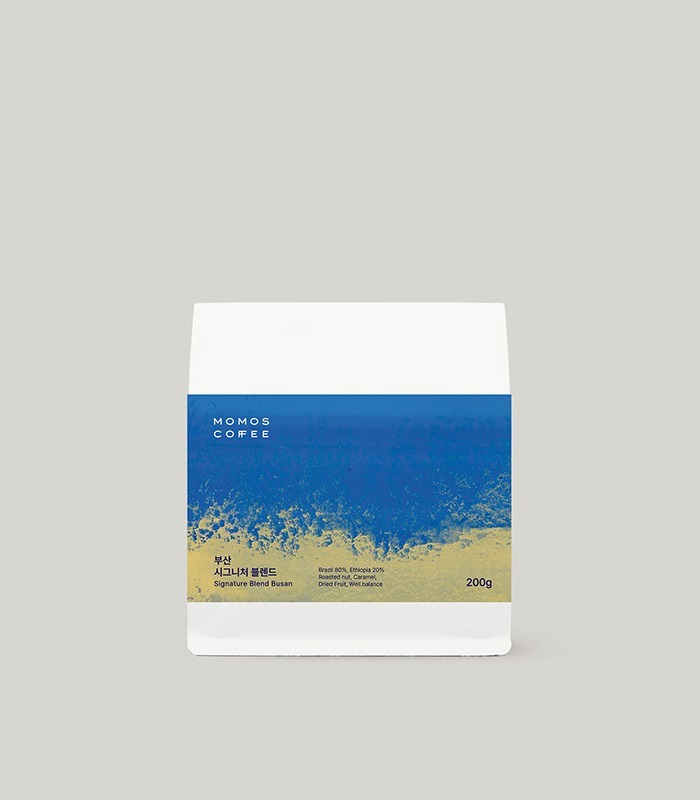
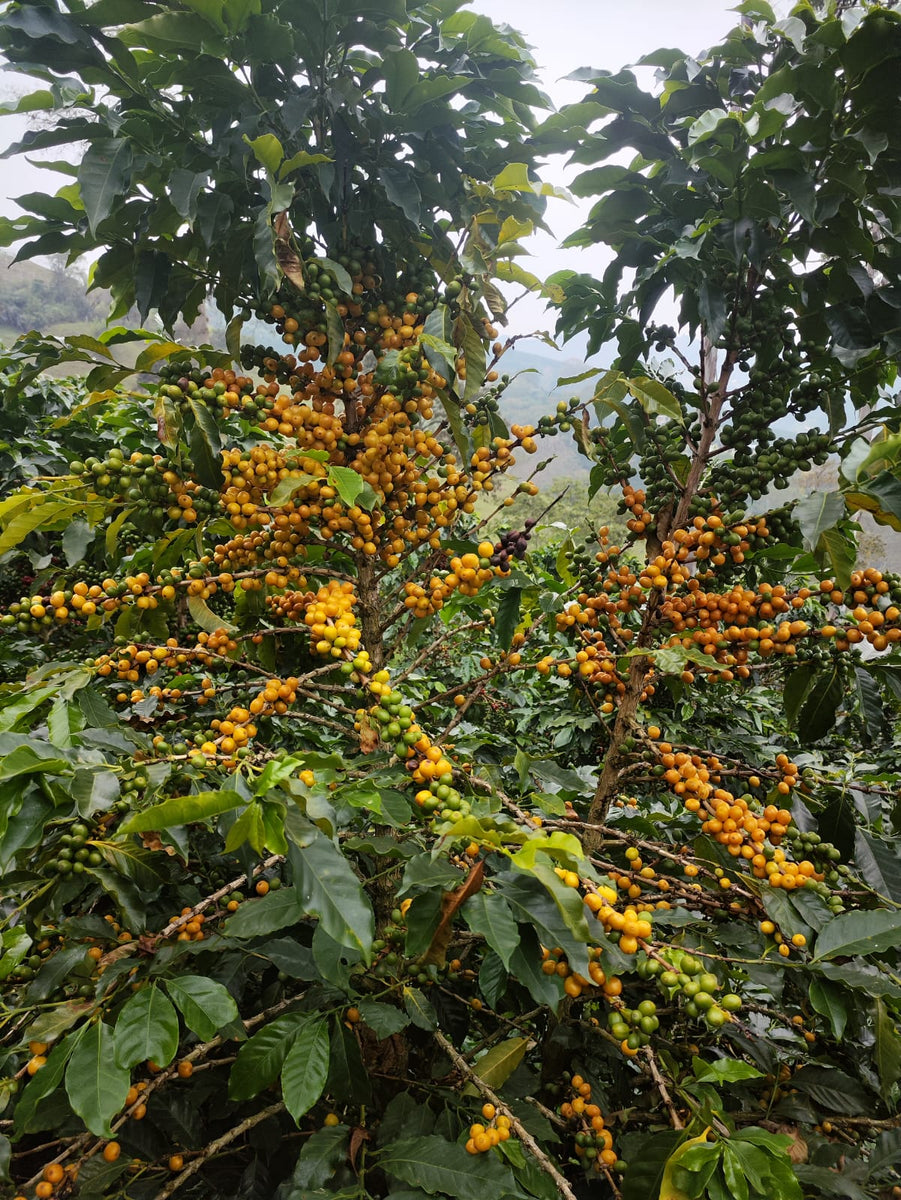
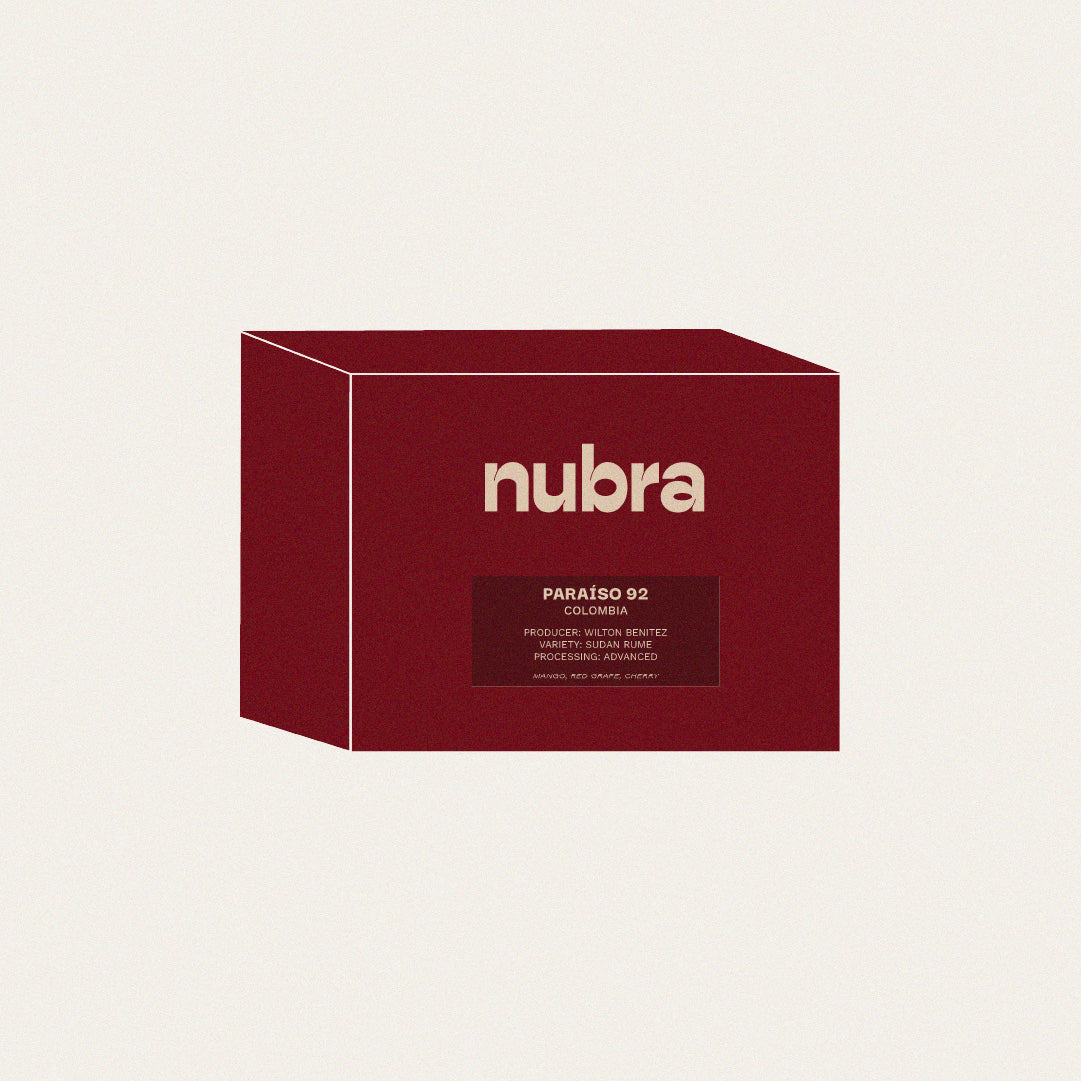
Colombia Wilton Benitez - Sudan Rume
Nubra Coffee Roasters
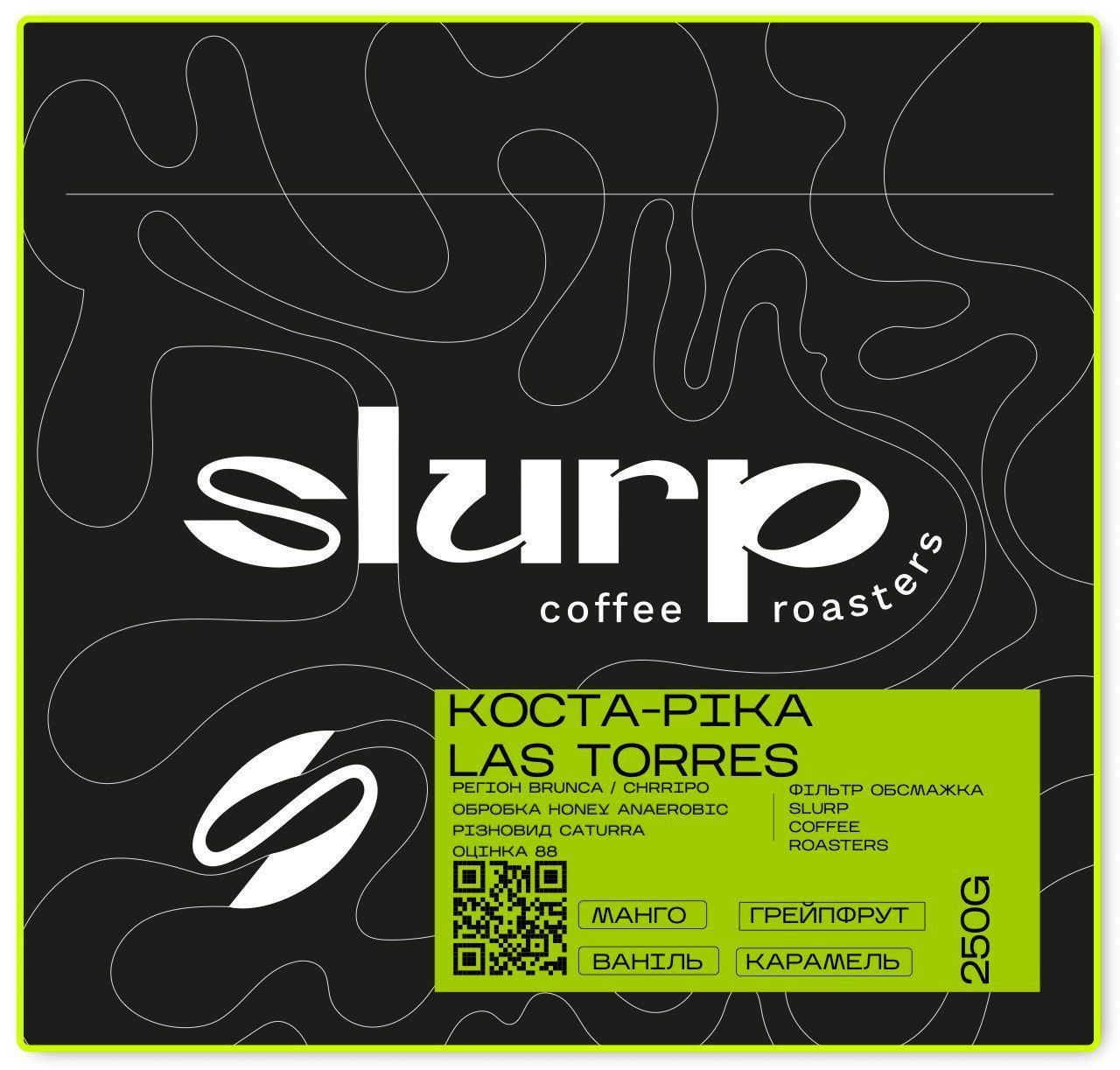
Costa Rica Las Torres
Slurp Coffee Roasters